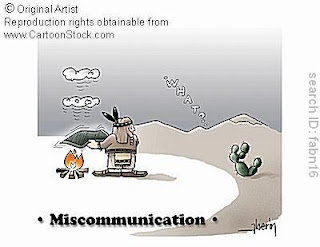skip to main |
skip to sidebar
Names hold a lot of power as we clearly saw in Lucy. I was fascinated by the way in which Lucy's name had been chosen, and how each part was meaningful in some sort of way, no matter how odd. Earlier, we discussed in class many of our names and how they were chosen, but what didnt really come up was a name in which was hurtful or not really suited for a person, but that person was stuck with it anyway. What I mean by this for example is how Lucy's first name, Lucy, was given to her because her mother named her after the devil. This is what I mean by hurtful. Lucy is now stuck with a name that does not have a positive connotation, but there does not seem to be much that she can do about it. Similar to Lucy, my own grandmother, was named in a similar fashion. No, she was not named after anything evil, forutnately, but she was named after somethign she is not. Her father had wanted always wanted a boy and was sure he would get one. When my grandmother was pregnant, he had no doubts she had a baby boy inside her. He prepared to name this chil Mike--a simple boys name. To his horrified surprise, the baby was not male, but female. In his stubborness he still insisted that she be named Mike. He was clearly in denial, and refused to accept a girly child, and maybe by not giving her a girly name, he could live in denial the rest of his life. Of course he eventually gre to love hsi daughter, but not before than name stuck, and still today she is called Mike. As a child this was very upsetting for her, knowing her father wished she was a boy and having to permanently carry a boys name. I foudn this story to be relevant simply becuase it illustrates the strength and power of a name. A common name such as, Mike, holds a history in its one syllable. The power of names is not to be underestimated or ignored.
Often names are the first thing people learn about us; it is the ultimate first impression. For example many times, in a new place, such as a school, etc., people will wear name tags. Before even meeting or being in a contact with a person, they will the name written on the name tag and form some sort of judgement, consciously or unconsciously. For example it is possible that at Saint Mary's if you see the name "KATIE" written on a name tag, you might think, 'oh, just another Katie, nothing important', and you are thereofre unengaged by this person, simply because of their name tag.

In class we have discussed langauage and culture and whether culture is lost when language is translated. In another class of mine, PHILO110W, we have discussed this topic. We read a book called The Other Side of Eden by anthropologist Hugh Brody, in which he discusses Culture and langauge. A topic that I focused on perosnally was whether ethics can be lost through language. The conclusion I came to was that, yes, ethics can be lost through language, and therefore culture is lost as well. A culture that I looked at was an Inuit culture in Northern Alaska/Canada that faced colonialism by Birtish Canadians. The inuit language is a language that is cery specific to that culture and unlinke any other. The way in which words are understood is through experience. Inuit children learn the language of their people by experiencing the land, a very unique experience which often can not be translated or understood by someone outside the culture. Words in Inuktitut (thats the language) have gained very unique meanings due to the land and the way in which the Inuti experience and Interpret it. It is because of this unique expeirence that outsiders have difficult times understanding the culture and often face a conflict in values and ethics. Such values and ethics cannot be translated from language to language because of this uniqueness. It is imperative to understand that by simply learning the technicalities of a language is not enough to fully communicate with and understand another culture.

...To many cultures a puff of smoke may just be a puff smoke. To this inuit culture, this puff of smoke is much more than that, it is a way to communicate with others. Further, even by learning the smoke puff signals, a foreignor may have difficulties interpreting importance, and other things of that nature.

